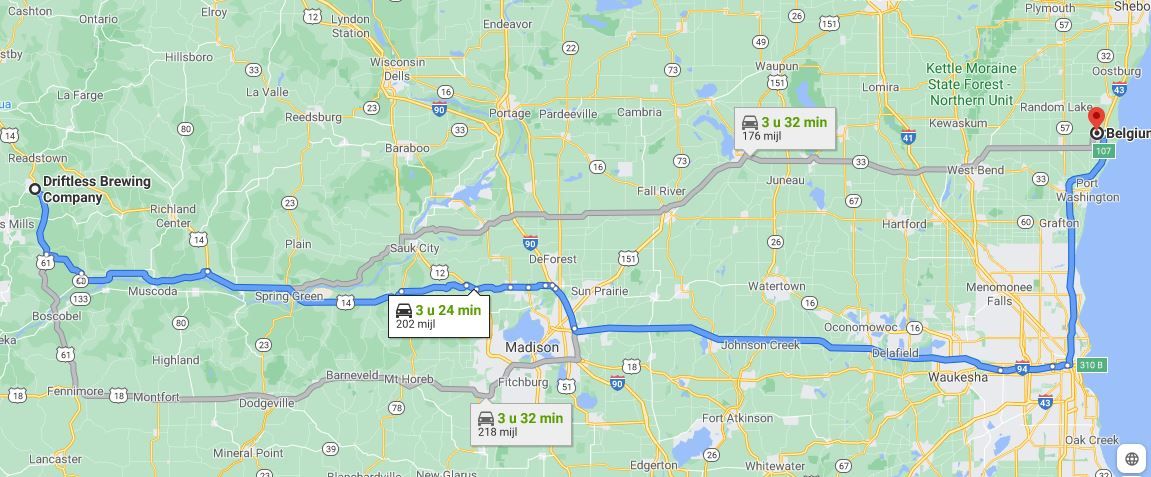The Spirit of Things
A Trans-Atlantic collab with Driftless Brewing Company
If there's one thing the Internet has brought us, it must be a smaller world. You can chat with friends wherever they are, and you can strike up friendships with anyone, anywhere in the world, as if they lived just around the corner.
Which is exactly what happened as summer waned, and the world was getting ready to crawl out(*) from under the first Corona wave.
*) mistakenly, but little did we know at the time.

Chris Balistreri, head honcho at Driftless Brewing Company (Minnesota, USA) dropped me a line and after some back-and-fro chatting, we found we shared many ideas and preferences, beer being, of course, the chief of them.
And what do friendly brewers do when time, distance and the absence of global pandemics permit?
Pandemics and logistics being what they are, we quickly decided that it was probably best to Brew-Apart-Together: each would brew "the same" beer at their own brewery, and the collab would be a collab mostly in spirit.
And BOOM we had a name.
Witness!
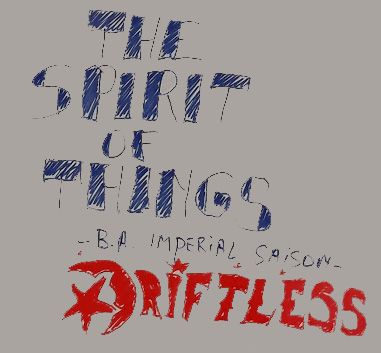
...our crappy Photoshop skills!
An imperial saison then, even if no such thing really exists. Saisons are by definition, as well as ipso facto, not imperial. They're quenching brews, intended to slake, rather than intoxicate. An imperial saison is like session barley wine: an oxymoron.
The fun thing about brewing, however, is that you can brew whatever the hell you want.
Even if it doesn't exist.
The anatomy of the beer
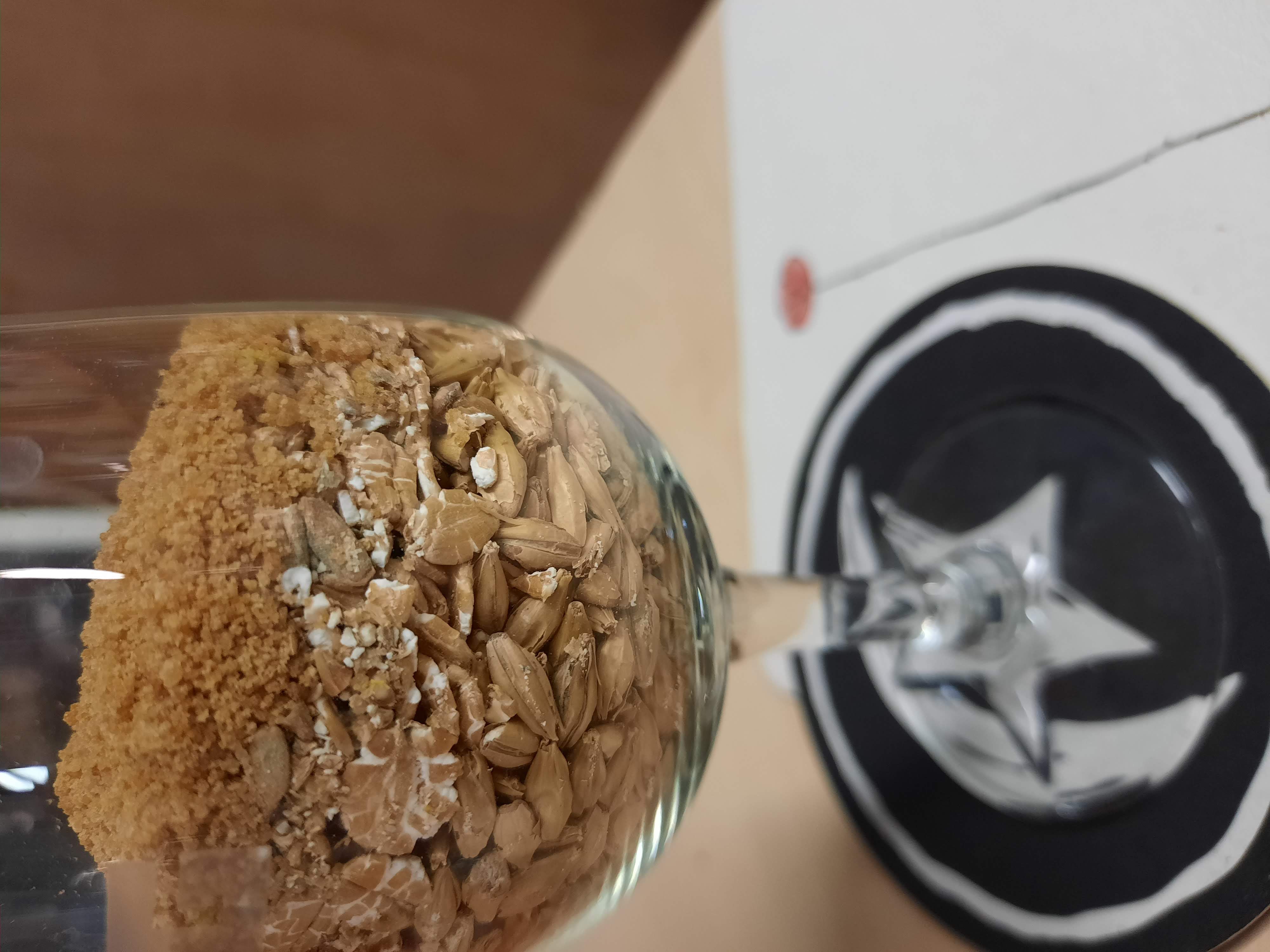
Or: what goes in.
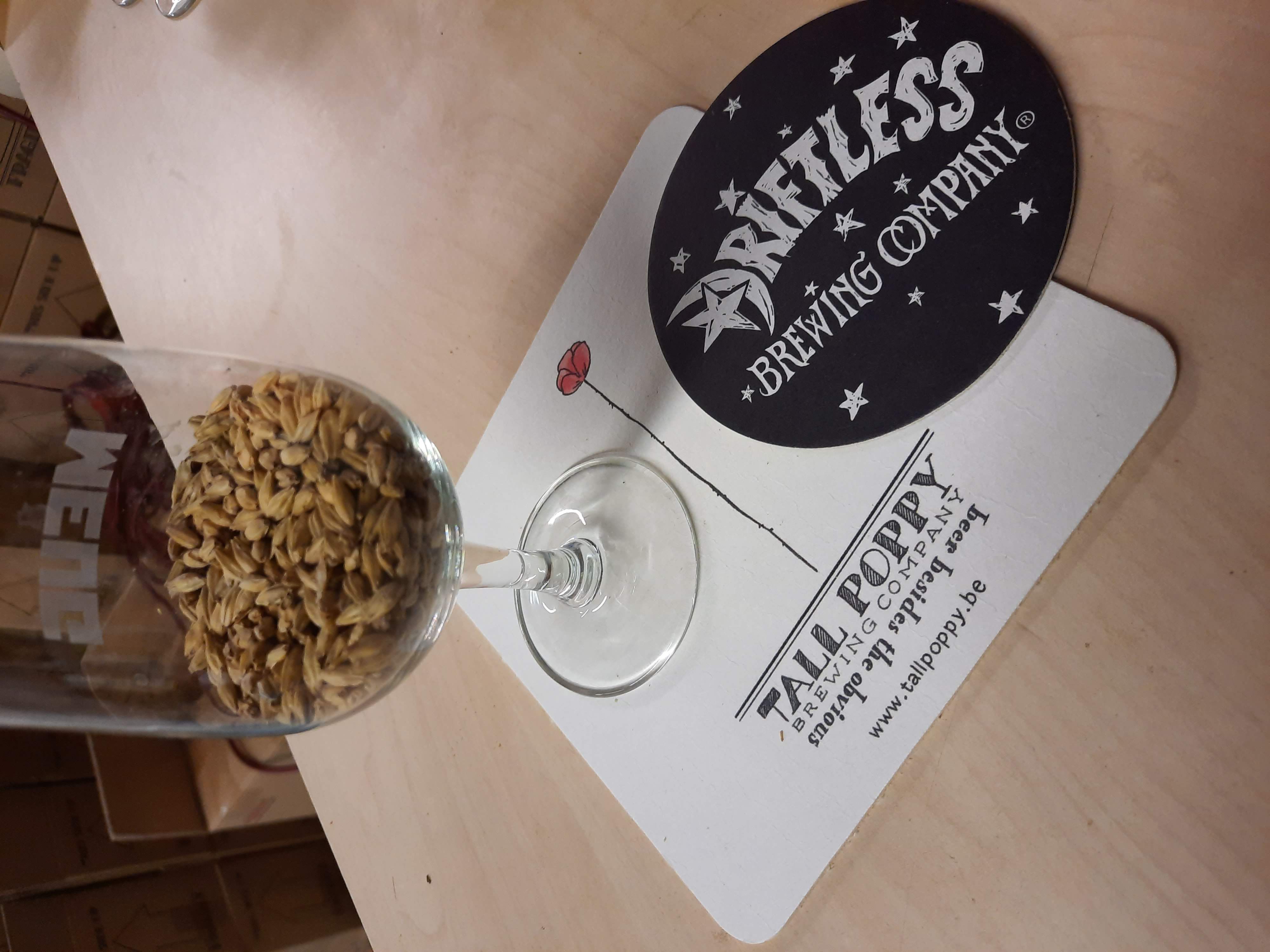
Pilsner malt
For the base line, we went with simple, honest pilsner malt. Taking up over 70% of the total grist, this will ensure a light color and matching body, despite the elevated alcohol. Imperial she may be, but we still want her to be dangerously drinkable.
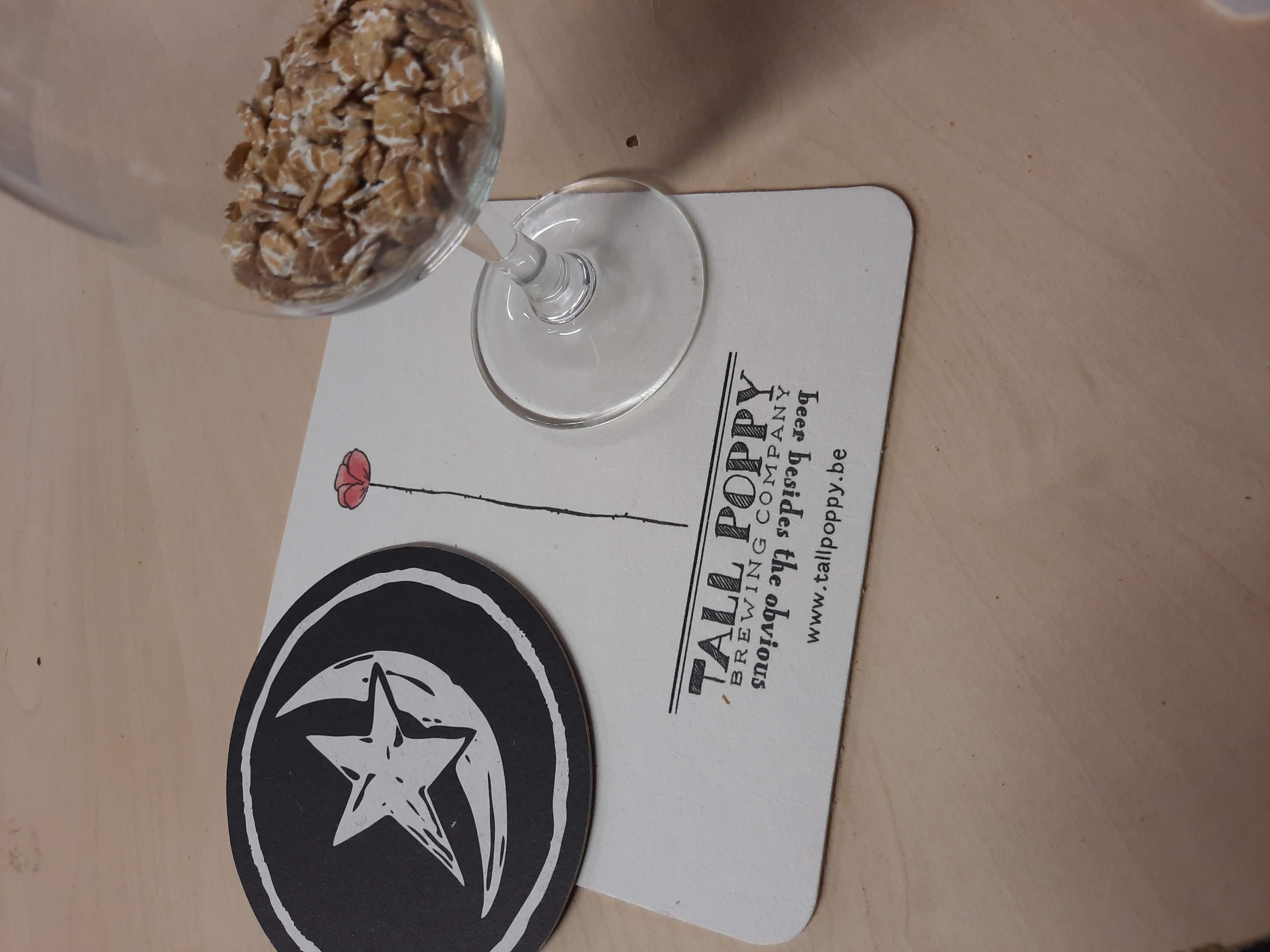
Wheat flakes
Saisons and wheat are like cookies and cream: meant to be together. 14% of raw wheat flakes will impart a mild zippiness to the brew, hinting of tartness but never actually becoming tart. The proteins will also support the head.
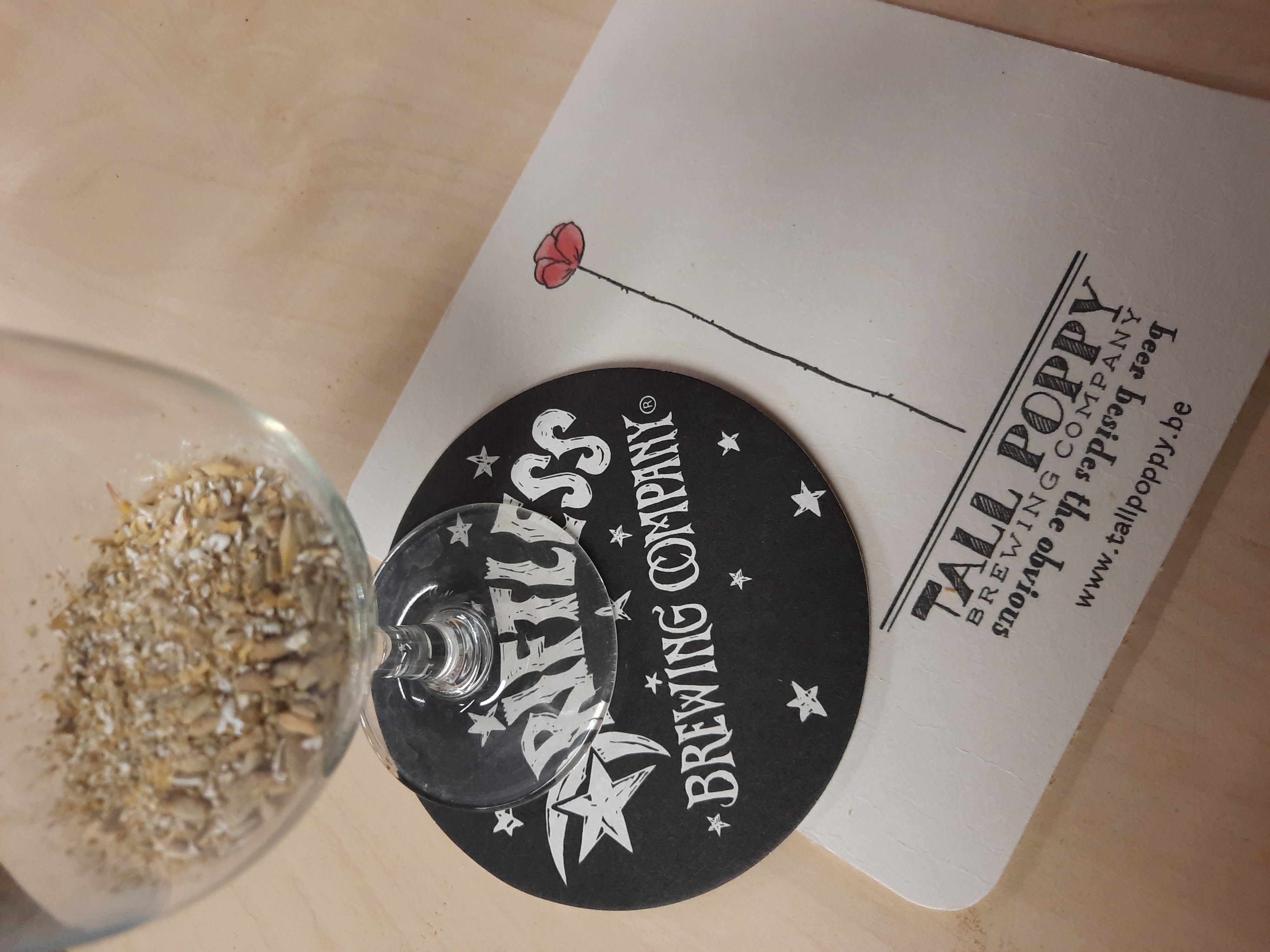
Rye malt
Saisons really yearn for some additional ingredients, be they grains or spices, fruits or hops. Rye adds a lovely layer of subtle spice to the brew, without having to resort to actual spices. About 8% will do fine for this one.
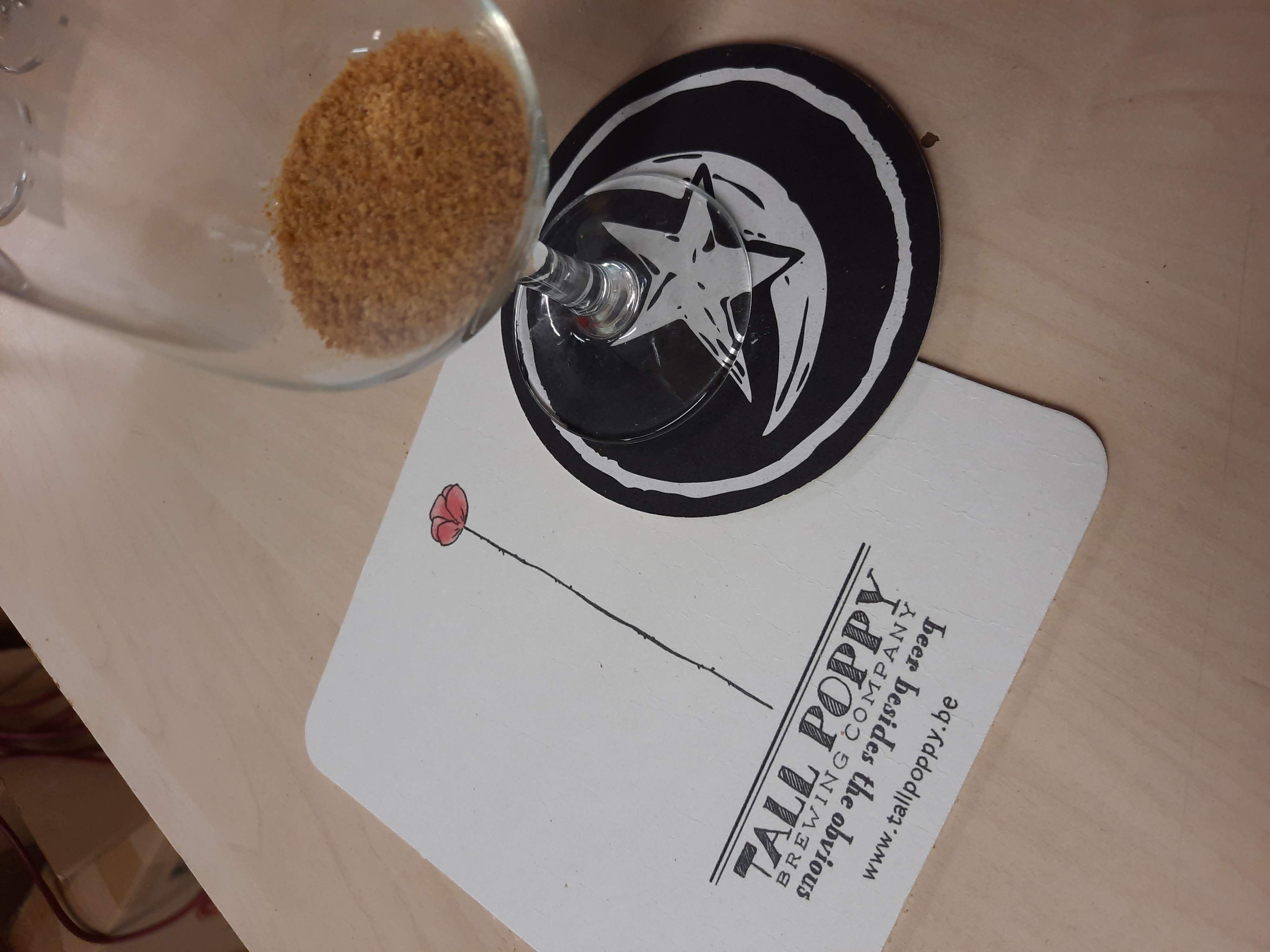
Coconut palm sugar
Belgian beer styles love sugar, which helps boost the alcohol in favour of a lower final body, and hence resulting in a beer that's not too heavy on the stomach. We opted for palm sugar, which has a lovely creamy texture, and a pronounced flavour hinting of dark sugar, without the burnt caramelly qualities of candi sugar.
All of this yielded a wort of 22°P, which will be fermented by a blend of saison yeast and traditional ale yeast, bringing with them both the phenolic spicyness which so defines saisons, as well as some light estery notes to round everything up. Left to run its course, the yeast will imbue the beer with a hefty 10% alcohol by volume.
For hops, we selected a generous dose of Enigma hops. This Australian breed imparts both a royal and assertive bitterness early in the boil, and more fruity, grape-like qualities later on. Used in the whirlpool or as a dryhop, she brings specific notes of Riesling wines, which we think will work marvelously with the Cognac barrels we're expecting soon, and which will be used to age the beer until she's ready to be bottled.

The Spirit of Things
A beer needs a name, and after we tossed some ideas back and forth, we decided on The Spirit of Things.
Fitting, since she's a collab in spirit, if not entirely in practice, due to distance and global pandemics making it impractical to actually brew this beer together. So Tall Poppy brewed the beer in Belgium, and Driftless brewed their own version in Wisconsin, USA.
Also, ingredients being what they are, each of us may have actually brewed a slightly different beer, with slight variations on the base recipe, so again, the beers will be the same, but mostly in spirit.
Ah, and then there's the Cognac, of course. Can't have a cognac-barrel aged beer without at least an attempt at a spirit-pun, can we?
So here's to brewing apart together!
Timeline
When? What? Where?
We've taken the first step and jumped the first hurdle: the beer is brewed. If all went well, Chris and Alex at Driftless have their own version bubbling away as you sit there reading this.
Now we face the next challenge: aging and finishing the beer. All in a day's work, but it'll take time. More on that process later, pinky promise.
The final stage will be getting the beer to you, wherever you are. So far, that too remains largely a romantic idea of "beer reaching out and connecting people regardless of borders" but if there's anything 2020 taught us, it may well be that borders are very much a real thing, hindering the free flow of beer's loving caress.
If anyone has any smart ideas about how to exchange small-but-significant quanitities of beer across the Atlantic, then we're keen to hear'm.
Hey wait, we can simply drive there!
Pour me a beer already, Chris, I'll be there by lunchtime!
Until then, y'all be safe, and happy.
Patient, most of all.

